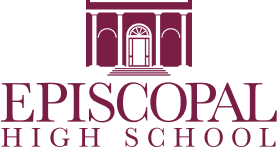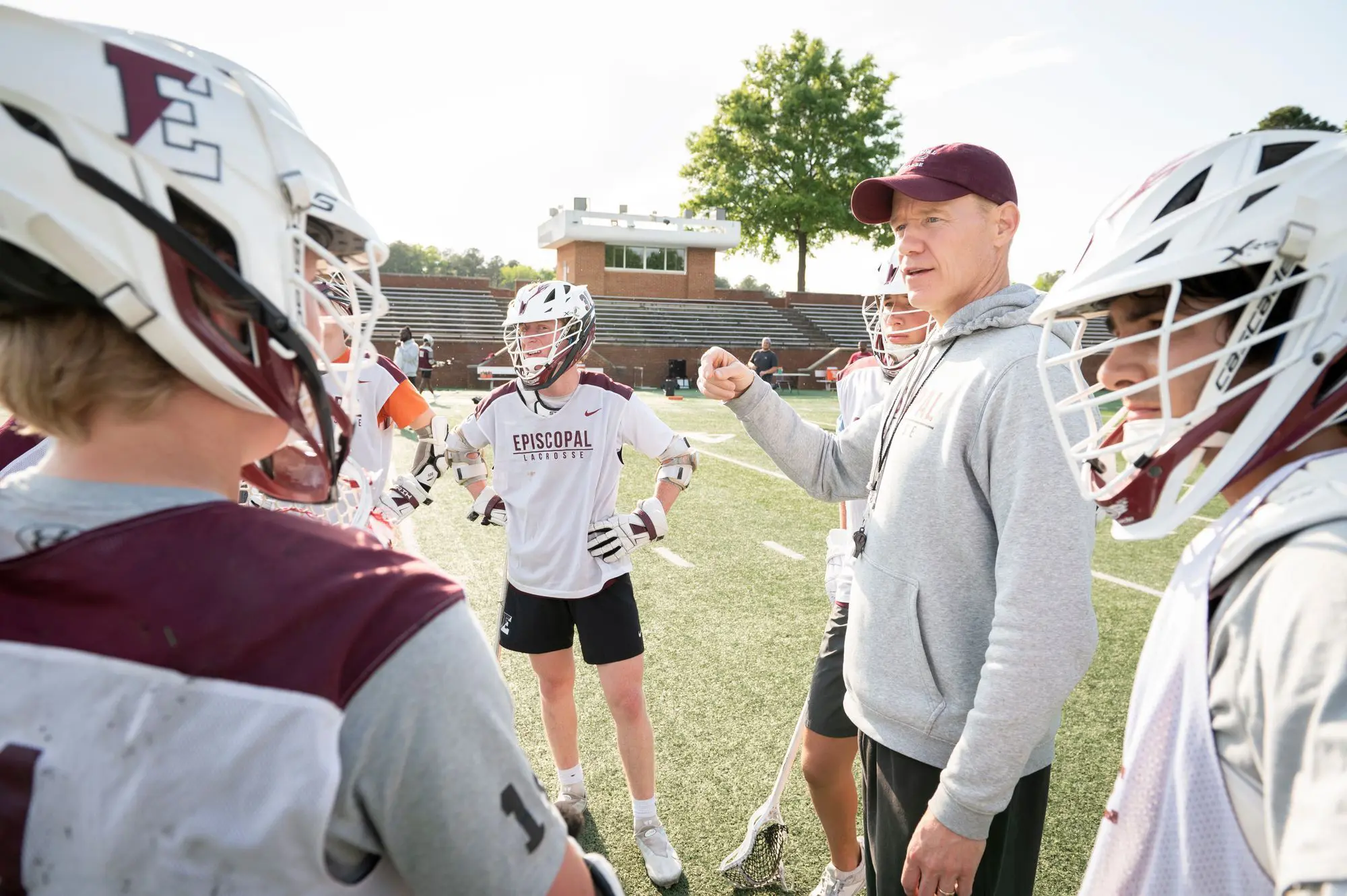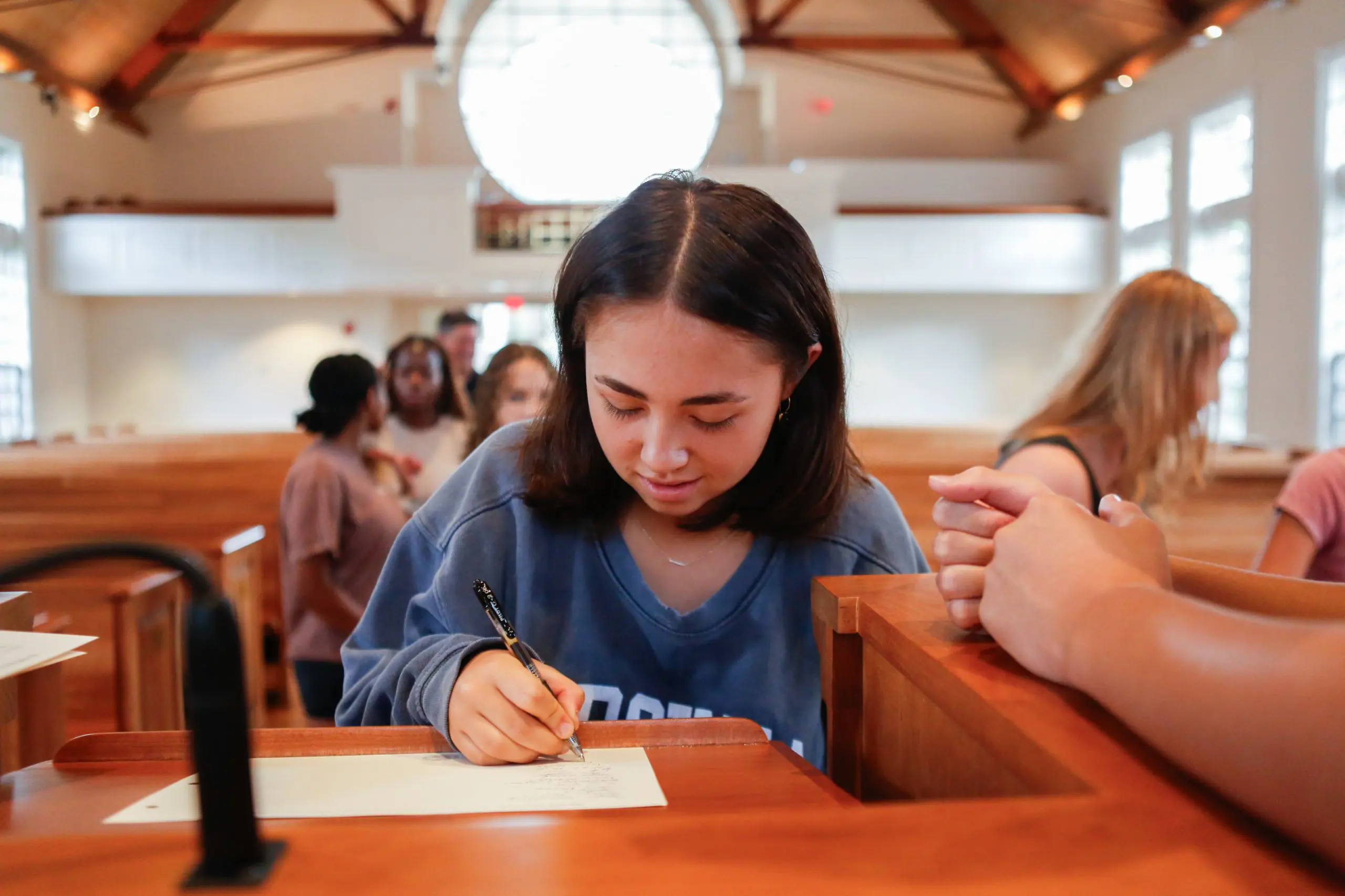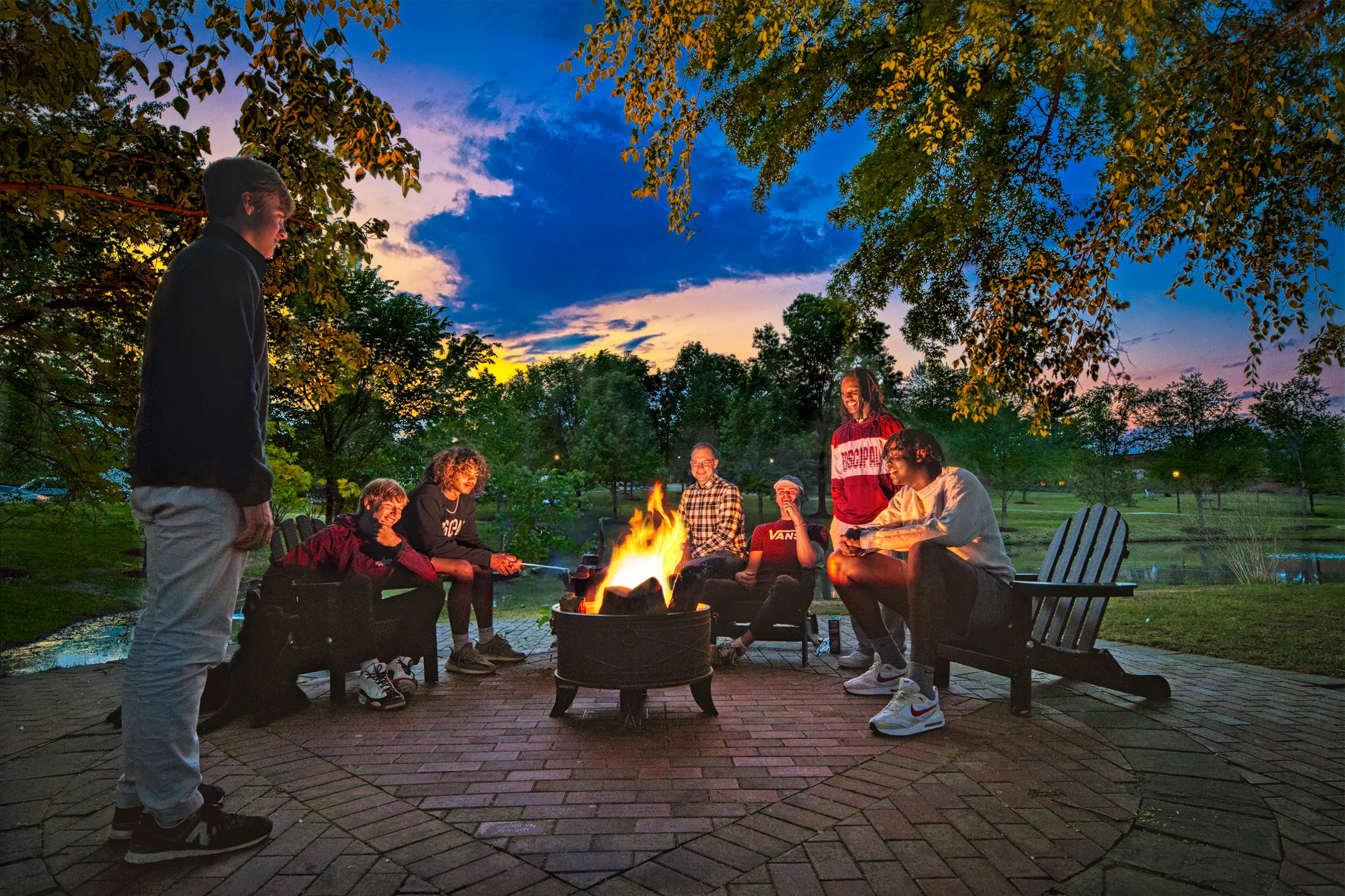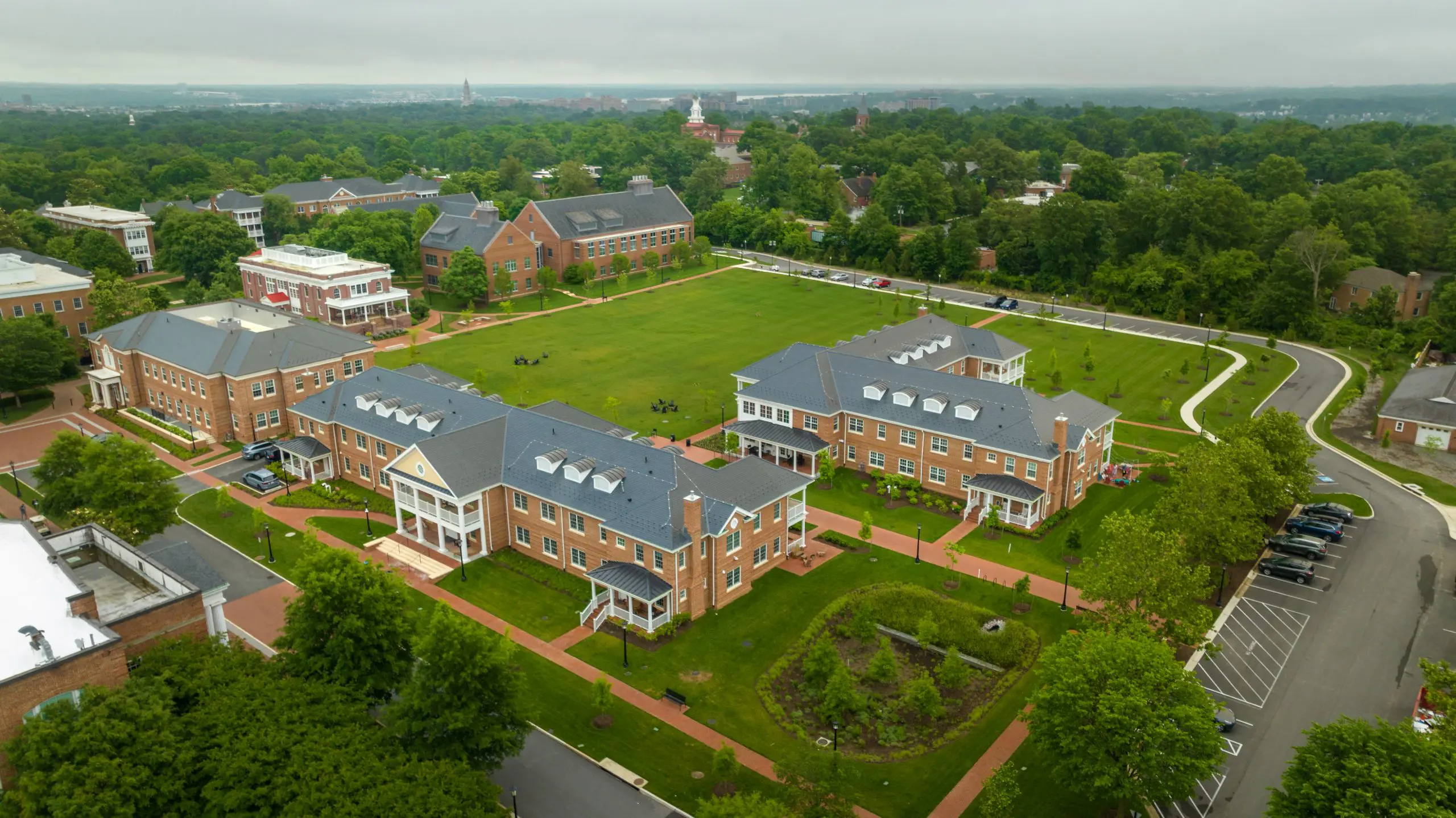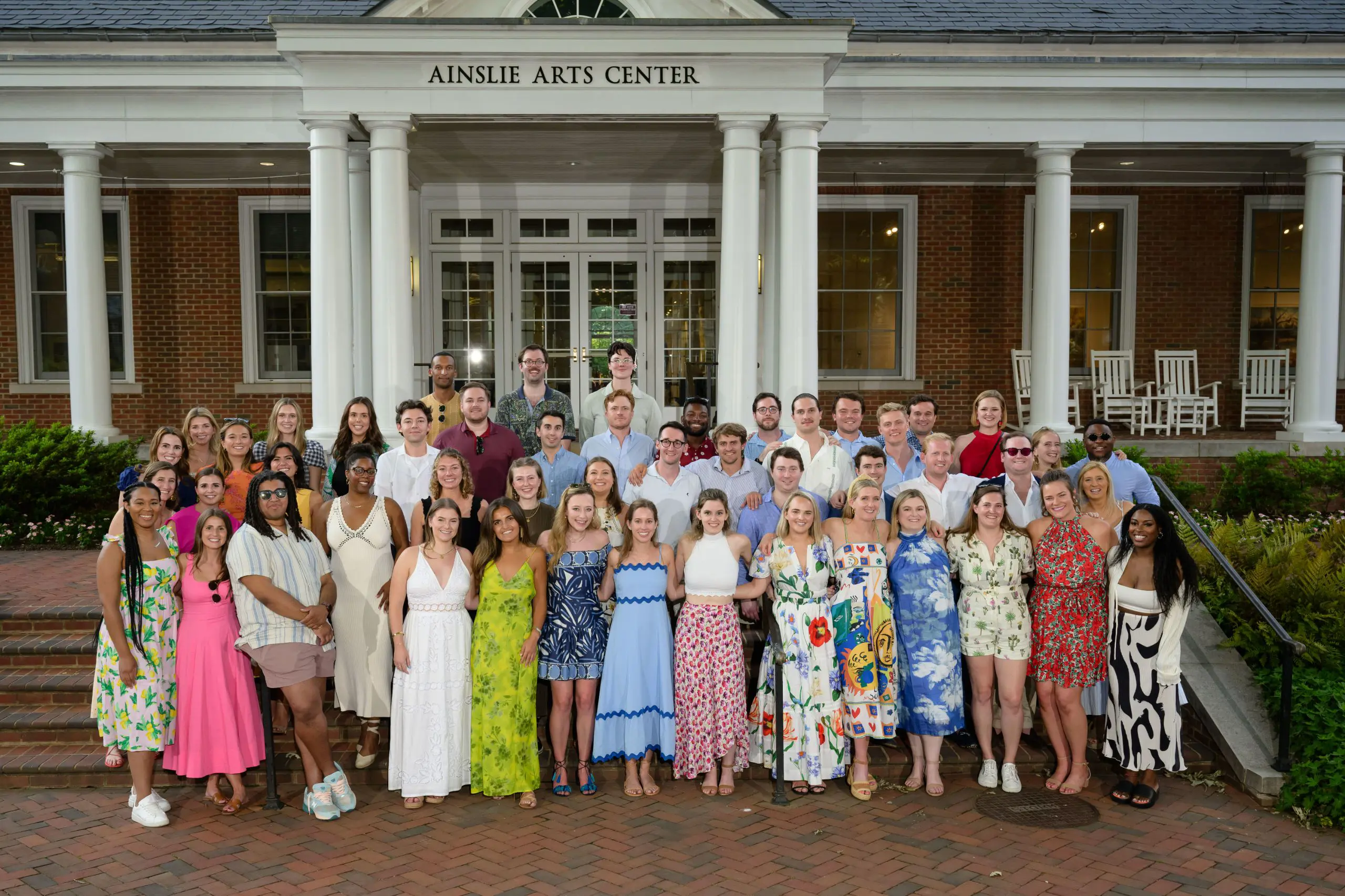EHS Style Guide
This is a supplemental reference to the AP Stylebook, which is the primary source for correct punctuation, grammar, spelling, and usage for all Episcopal High School communications.
A-B
| A |
Advisory Council
ages
- Use numerals for ages of people and animals: the girl was 4 years old; a 5-year-old boy was the ring bearer; the woman is in her 30s (no apostrophe).
- Hyphenate ages expressed as adjectives before a noun or as substitutes for a noun: the Pryors have a 2-year-old girl; the boy is 5 years old; the race is for 3-year-olds.
alumni
- Always use alumnus (singular male), alumna (singular female), alumni (plural male or male and female), and alumnae (plural female). Never use alum, alums, or grads.
- When referring to an entire EHS class, lowercase “the” and capitalize “Class”: the Class of 2003. When referring to more than one class, use “the Classes of”: the Classes of 2010-12, the Classes of 2005 and 2007.
- On first reference, refer to a student or alumnus with their first and last name: Cotten Alston '63.
- On subsequent reference, use the subject's last name only, unless the article refers to more than one person with the same last name, such as a married couple or family. In that case, use their first name.
- Class years should directly follow names, without a comma between the name and year. When Jr. follows the name, there should be a comma between the name and Jr. When a Roman numeral follows the name, there should be no comma between the name and numerals: Sarah Akridge Knutson '96, Lee S. Ainslie, Jr. '56, Arthur H. Bryant II '60.
- Use the subject's preferred name instead of their formal name as identified in Raiser's Edge: Kathy Smith '07 (not Kathleen Smith '07).
- Class years prior to 1920 should not be abbreviated: John Smith 1920 (not John Smith '20).
- alumni couples
- In general, when referring to Mr. and Mrs., use only the man's name: Mr. and Mrs. James M. Burke '72.
- When only using first names, the woman's name comes first: Sheila and Jim Burke '72.
- If the woman is an alumna, her name always comes first: Mrs. Sarah Akridge Knutson '96 and Mr. Brian E. Knutson '96, Mrs. Lucy Whittle Goldstein ’97 and Mr. Jeremy Goldstein.
- Always use the alumna's maiden name, even when not using formal names and titles: Sarah Akridge Knutson '96 and Brian Knutson '96.
annual fund
- Lowercase annual fund but capitalize Roll Call.
athletics
- Capitalize Athletics Center.
- Do not capitalize teams or sports: boys’ varsity soccer, girls’ JV lacrosse, football.
- Capitalize specific championships and lowercase general references: Virginia Independent School Association Wrestling Championship, the wrestling championship, state championship.
- Capitalize leagues and spell out upon first reference: Interstate Athletic Conference (IAC), Independent School League (ISL).
- Capitalize full names of athletic awards: Moncure Award, Hayden-Faunce Trophy, Most Valuable Player Award, Player-of-the-Year.
- Hyphenate and capitalize honors such as: All-IAC, All-Conference, All-ISL, All-League, All-VISAA, All-State, Washington Post All-Met. When possible, be specific: All-IAC, not All-Conference; All-ISL, not All-League.
- Capitalize named events: Seminary Hill Cup, The Game, Spirit Weekend, IAC Basketball Tournament.
- Use numerals for distances (and all units of measure): 5-yard line, 100-meter dash.
- Use “track and field” in article text. Use “track & field” in tables and listings, including awards boards.
- For place in competition: she ranked No. 1 in the state; she took first place; he came in 10th place.
awards and scholarships
- Capitalize full names of awards: Elizabeth Andrews Watts Scholarship for Photography.
|
| B |
|
Baccalaureate
Ben Geer Keys Scholar-in-Residence
Board of Trustees
Capitalize “Board of Trustees,” the title “Trustee” before a name, and “Board” when referring to the Board of Trustees.
the Bradlee Center
- Can also be referred to as “The Center.”
breaks (fall, Christmas, and spring)
- Do not capitalize fall break or spring break.
- Use Christmas break, not winter break.
buildings and spaces
- Capitalize named buildings and spaces, including and especially the following:
- Bocock Wrestling Cage OR The Cage
- Hershey Athletics Center
- Centennial Hall (trophy room, locker rooms, training room, security office, equpiment office)
- Ainslie Court (varsity basketball, volleyball court inside Centennial Hall)
- The Gym (NOT "New Centennial")
- Laird Acres (the woods behind the athletic fields, often referred by students as "Vietnam")
- March Library (the space) and Hummel Learning Center (the building)
- Seidule History Center (the second floor of Townsend)
- Sperry Lecture Hall
- The Student Center in Stewart Gym OR Stewart Student Center
- Correct titles and names for all buildings and spaces can be found on the online Campus Map
|
C-D
| C |
|
captions
- See “photos and captions.”
chair/chairman
- Use chair, not chairman, except chairman of the Board of Trustees: chair of the English Department.
championships
Chapel/chapel
- Capitalize the building, not the service: The chapel service was held in the Chapel.
Chapel Talks
class of
Class years
colons
- Colons go outside quotation marks unless they are part of the quotation.
- Capitalize the first word after a colon only if it is a proper noun or the start of a complete sentence.
commas
- Use commas to separate items in a series, including before the concluding conjunction: glove, bat, ball, and shoes.
- Use commas to separate equal adjectives, where the commas could be replaced by the word “and”: a thoughtful, precise manner.
- Use commas to offset nonessential clauses: Tom’s wife, Jane, accompanied him on the trip. (“Jane” is nonessential because Tom only has one wife, so naming her is not essential to identifying her.)
- Use a comma after an introductory clause or phrase: When he had tired of the mad pace of New York, he moved to Dubuque.
- Commas always go inside quotation marks.
- The comma can be omitted if the introductory phrase is short and no ambiguity would result: During the night he heard many noises.
- Use a comma to separate two independent clauses joined by a conjunction: We are visiting Washington, and we will also spend time in Williamsburg.
- Use a comma before and after a state (or state abbreviation) when it is preceded by a city: We will visit Alexandria, Va., before venturing into Washington, D.C. Avoid the following awkward construction: He is applying to Washington, D.C., area schools.
Commencement
couples
- When using full names, the woman’s name always comes first.
- See also “alumni couples.”
Courage: The Campaign for Episcopal
Public Launch: November 2022
How to refer to COURAGE in a sentence:
- Courage: The Campaign for Episcopal
- COURAGE
- Courage Campaign
Misc. Notes Re: COURAGE styles
- “world-class faculty and staff”
- Always italicize The Power of Parent Giving.
- WITH COURAGE, WE WILL…
- Graphics styling may differ at times, but we should adhere to these style guidelines as closely as possible.
- Sometimes in design in the magazine or print pieces, we will use COURAGE and COURAGE CAMPAIGN in bold and all caps.
|
| D |
|
Daemon
dashes
- Use the em dash surrounded by spaces to denote an abrupt change, to offset a series within a phrase, or to attribute a quote: We will fly to Paris in June — if I get a raise. He listed the qualities — intelligence, humor, conservatism, independence — that he liked in an executive.
- Use a hyphen to indicate a closed range of numbers: 8 - 9 p.m., 2007-08. Use spaces around a hyphen when the range includes numbers and letters; do not use spaces when the range contains only numbers.
dates
- Months should be abbreviated according to AP Style notations (Jan., Feb., Aug., Sept., Oct., Nov., and Dec.): She was married Sept. 18, 2002. Always spell out March, April, May, June, and July. When referring to something by the month only, do not abbreviate: She got married in September 2002.
- Use commas around years that are part of dates within text: They were married June 1, 2012, in Greensboro, N.C.
departments/offices
- Capitalize full names of departments and offices: Social Studies Department, Advancement Office.
- Lowercase theater program but capitalize Washington Program.
- Do not capitalize when used alone: The entire department is sad to see Bobby Watts go.
dorm
See “on dorm.”
|
E-H
| E |
|
EHS
- Do not use periods.
- Do not use “EHS” when referring to the School in the possessive: Episcopal’s campus, the School’s facilities.
email
- Do not hyphenate.
- Always use a salutation and a closing when sending email - even when addressed to students.
Episcopal High School
- Appropriate terms for referring to Episcopal High School include: Episcopal High School (not the Episcopal High School), The High School (initial cap on “the”), EHS (no periods), The Holy Hill (initial cap on “the”), the Hill, and School (for usage, see entry for “School”).
events
Capitalize special EHS events: Reunion Weekend, Spring Parents Weekend.
|
| F |
|
fall
fall break
Fall Parents Weekend
Finals Dance
|
| G |
|
The Game
- Specifically, the annual Episcopal-Woodberry football game.
grades
- When referring to grades, use the numbers 9-12 or ninth-12th grade.
- Do not use superscripts.
Grandparents and Special Friends Day
Not possessive.
|
| H |
|
headlines
- Each word within the headline should be capitalized with the exception of articles and prepositions unless they are the first or last word in the headline.
- Use double quotes (quotation marks) in headlines when needed, not single quotes (apostrophes).
Headmaster
- This title has been replaced with Head of School and now refers to former Headmasters up until 2016. Always capitalize, whether before a name or standing alone: Headmaster Rob Hershey; the Headmaster is available for meetings. No longer used to refer to current leadership.
Head Monitor
Head of School
- Always capitalize, whether before a name or standing alone: Head of School Charley Stillwell. Never: "Head." Use instead of Headmaster.
health center
- See "McCallister Health Center."
The High List
The High School
the Hill
The Holy Hill
the Honor Code
Honor Committee
|
I-L
| I |
|
invitations (printed and electronic)
- Spell out day of week and month, no abbreviations.
- Use a.m. and p.m.
- Use proper and complete listing of spaces on campus: March Library Terrace, Laird Dining Hall.
|
| J |
|
JV/junior varsity
- Use JV as a modifier: She plays JV lacrosse.
|
| L |
|
leagues
|
M-P
| M |
|
the Maroon/Maroon and Black
Mass Meeting
McCallister Health Center
- Lowercase "health center" when it stands alone.
Monitor(s)
|
| N |
|
names
- See “alumni” and “titles.”
newsletter
numbers
- (See “AP Stylebook” for more detailed rules.)
- Do not use superscripts for ordinal numbers: 10th Reunion, 25th anniversary.
- In general, spell out cardinal and ordinal numbers below 10(th), and use numerals for numbers 10(th) and above: they had a fleet of 10 station wagons and two buses, he was the 14th player to reach second base.
- Always use numerals for:
- Dates: July 4, April 18.
- Ages of people and animals (but not inanimates): The girl was 4 years old, a 5-year-old boy, the woman is in her 30s.
- Units of measure: 2 feet, 8 miles, 4 pounds, 14 gallons. (We do not consider time a unit of measure: one hour, two minutes, seven years, 13 days.)
- Ordinal numbers that are part of a name: 1st Ward, 1st Sgt., 2nd Avenue.
- Percentages: 1 percent, 4 percent, 15 percent.
- Always spell out:
- Numbers that begin sentences: Twenty-three members of the Class of 2007 returned for Reunion. (However, do not spell out years, even at the beginning of a sentence: 1976 was a great year.)
- Casual expressions: thanks a million; a thousand times no.
|
| O |
|
offices
- See “departments/offices.”
on dorm
- Always use “on dorm” when referring to activities occurring within a dormitory: They watched a movie on dorm.
|
| P |
|
Parent/Guardian Designation
- When possible, indicate with parents' name the class year(s) of their children.
- William H. deButts III '76 P'08 '10 '12
- Christina Maher Holt P'12 '15 '17
Parents Weekend
- Capitalize: Spring Parents Weekend, Fall Parents Weekend.
- Not possessive.
percent
- Spell out in text and use numerals for all preceding numbers: 100 percent boarding, 1 percent increase.
photos and captions
- Never distort images (i.e., always preserve original proportions).
- Identify subjects front to back, left to right.
- Always use the subject’s full name (and class year, if appropriate) on first reference in a caption, even if they are identified in the accompanying article.
- End each caption with a period, even if it is not a complete sentence, unless it is simply a name or names.
Portrait in Faith
programs
- Lowercase theater program, but capitalize Washington Program.
punctuation
- See separate entries for “colons,” “commas,” “dashes,” “parentheses,” “quotation marks,” and “semicolons.”
- Use a single space after end punctuation.
- Commas and periods always go inside quotation marks. Colons, semicolons, exclamation marks, question marks, and dashes go after quotation marks unless they are part of the quotation: He called the play "trite," but I found it rather profound. What do you mean by "bold"? She said, "I can't stand the noise!"
|
Q-T
| Q |
|
quotation marks
- Use quotation marks for all composition titles except the Bible: “Whispers,” “Freaky Friday,” “The Star Spangled Banner,” “Of Mice and Men.”
- Use double quotes (quotation marks) in headlines when needed, not single quotes (apostrophes).
- Place commas and periods inside quotation marks, and place semicolons, colons, exclamation points, and question marks outside quotation marks unless part of the quotation.
|
| R |
|
Reunion Weekend
the Rev./the Rt. Rev.
- Use "the" on first reference.
- Do not capitalize "the" when it does not begin a sentence: The service will be led by the Rev. Betsy Gonzalez.
Roll Call
|
| S |
|
Scholar-in-Residence
- See “Ben Geer Keys Scholar-in-Residence.”
scholarships
- See “awards and scholarships.”
School/school
- Capitalize when used as a noun in reference to EHS: the School’s 3-D printer; we are proud of our School; the quality of students is vital to the health of the School.
- Do not capitalize when used as a modifier: school song, school-sponsored activities, school community, school life.
- Do not capitalize when used to refer to school in general: boarding school, school year, directions to area schools, securing the future of our schools.
school year
- The school year in text should be noted as 2003-04, not 2003-2004.
seasons
- Do not capitalize seasons – spring, summer, winter, fall – unless part of an event title.
semicolons
- Use between items in a series of three or more that contains internal commas: He is survived by his wife, Jane; two daughters, Eliza and Elspeth; and a grandchild.
- Use to link independent clauses: The package was due last week; it arrived today.
- Place semicolons outside of quotation marks.
Seminary Hill Cup (SHC)
Senior Seminar
Senior Warden of the Vestry
Suffix in names
- Do not add comma before Jr., Sr. ,III, etc.
social media
- Facebook: Episcopal High School in Alexandria, Va.
- Instagram: episcopalhs
- Twitter: episcopalhs
- YouTube: EpiscopalHSVa
- LinkedIn: Episcopal High School Alumni
speakers
Spirit Weekend
sports
spring
spring break
Spring Parents Weekend
states
- In text, when preceded by a city, states should be abbreviated according to AP Style notations, which are often different from postal codes. For example, Arizona is abbreviated Ariz., not AZ.
student organizations
- Capitalize: e.g., Activities Committee.
summer
superscript
- Do not use superscript with ordinal numbers: 10th Reunion, 25th anniversary.
|
| T |
|
teacher
In general, refer to the Episcopal faculty, not teachers.
Do not capitalize "teacher” as part of a faculty member’s title, and only capitalize the subject if it is a language: English teacher Perry Epes, social studies teacher Bobby Watts. Exceptions include bylines and directory entries.
teams
Theologian-in-Residence
titles (composition)
- Do not use italics or quotation marks for publication titles or reference: The Washington Post, The Chronicle, Encyclopedia Britannica.
- Use quotation marks for all composition titles except the Bible: “Whispers,” “Freaky Friday,” “The Star Spangled Banner,” “Of Mice and Men.”
Titles (faculty, administrative, and volunteer)
- Capitalize titles when used before names: Assistant Head for Academics Mary Fielder.
- Do not capitalize “teacher” when used before a name, and only capitalize the subject if it is a language: English teacher Perry Epes, social studies teacher Bobby Watts.
- Do not capitalize titles after names: Mary Fielder, assistant head for academics.
Time
- a.m. and p.m.
- Add EST and EDT to provide clarity
track and field/track & field
- Use “track and field” in article text. Use “track & field” in tables and listings, including awards boards.
Trustee
- Capitalize before a name: former Trustee Woody Coley ’73.
- See also “Board of Trustees.”
|
U-Z
| V |
|
Valedictory/Valedictory Program
Vespers
Vestry
Senior Warden of the Vestry
visiting speakers
- Ben Geer Keys Scholar-in-Residence
- Integrity in Action
- Jay Walker Symposium
- Portrait in Faith
- Theologian-in-Residence
|
| W |
|
the Washington Program
webpage
website
winter
the Writing Center
|
| Y |
|
years
- The school year in text should be noted as 2003-04, not 2003-2004.
- Do not use apostrophes for decades: She is in her 30s. That’s the way it was in the 1950s.
|
Appropriate terms for referring to EHS include:
- Episcopal High School (not the Episcopal High School)
- The High School (initial cap on “the”)
- EHS (no periods)
- The Holy Hill
- the Hill
- School (capitalize when referring to Episcopal High School when used as noun, not as a modifier)
Do not use “EHS” when referring to the School in the possessive. Correct use of the possessive: Episcopal’s campus, the School’s facilities. (Never: EHS’s faculty.)
Logos, Fonts, and Colors





